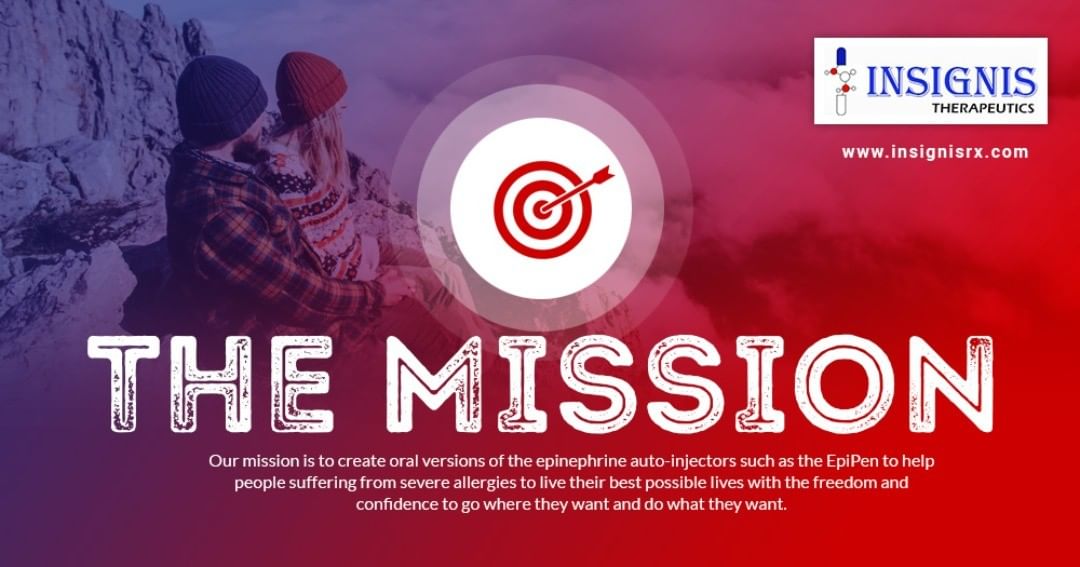
The Mission
Our mission is to create oral versions of the epinephrine auto-injectors such as the EpiPen to help people suffering from severe allergies to live their best possible lives with the freedom and confidence to go where they want and do what they want.
About Anaphylaxis
Anaphylaxis is a severe, potentially life-threatening allergic reaction that can occur rapidly, often within minutes of exposure to an allergen. Common triggers include certain foods, insect stings, medications, and latex. The condition is characterized by a sudden release of chemicals in the body, leading to symptoms such as swelling, hives, difficulty breathing, a drop in blood pressure, and, in severe cases, loss of consciousness. Immediate medical treatment is crucial, typically involving an injection of epinephrine, which can reverse the symptoms. Individuals at risk of anaphylaxis are often advised to carry an epinephrine auto-injector and wear medical identification to alert others to their condition.
Unmet Medical Needs
Epinephrine auto-injectors, while lifesaving, have several limitations. Firstly, they require proper training for effective use, and incorrect administration can reduce their effectiveness. Additionally, the high cost of these devices can be prohibitive for some patients, limiting accessibility. The shelf life of auto-injectors is relatively short, often around one year, necessitating regular replacements, which can be financially burdensome. Furthermore, storage conditions pose a challenge, as the medication can degrade if exposed to extreme temperatures, potentially compromising its efficacy when needed most.
Needle phobia, or trypanophobia, presents a significant barrier to the effective use of epinephrine auto-injectors. This fear can cause hesitation or outright refusal to use the device, even in life-threatening situations, increasing the risk of severe outcomes from anaphylaxis. The anxiety associated with needles can also impede individuals from carrying their auto-injectors consistently, further compromising their safety. Moreover, needle phobia can complicate the training process, as individuals may avoid learning how to use the auto-injector properly.

